Elimination in Science
Elimination is a process by which the body removes waste products and toxins. In the context of biology and human anatomy, elimination refers to the expulsion of waste materials from the body, including urine, feces, and sweat. This process is essential for maintaining the body's internal balance and overall health.
Types of Elimination
There are several types of elimination processes in the human body:
- Urinary Elimination: The kidneys filter waste products from the blood to produce urine, which is then eliminated from the body through the urinary system.
- Fecal Elimination: Solid waste materials, including undigested food and bacteria, are eliminated from the body through the rectum and anus in the form of feces.
- Sweat Elimination: The skin plays a role in elimination by releasing sweat, which contains water, salts, and small amounts of waste products.
Importance of Elimination
Proper elimination is crucial for maintaining overall health and well-being. It helps rid the body of harmful substances and prevents the buildup of toxins, which can lead to various health issues. Additionally, efficient elimination ensures the proper functioning of the body's systems and organs.
Factors Affecting Elimination
Several factors can influence the process of elimination, including:
- Diet: A balanced diet with an adequate intake of fiber and fluids can promote healthy digestion and regular bowel movements.
- Hydration: Proper hydration is essential for supporting urinary function and preventing issues such as kidney stones.
- Physical Activity: Regular exercise can help stimulate bowel movements and promote overall digestive health.
- Medical Conditions: Certain medical conditions, such as kidney disease or gastrointestinal disorders, can affect the body's ability to eliminate waste effectively.
Study Guide
When studying elimination in science, it is important to focus on the following key points:
- Understand the different types of elimination processes in the human body, including urinary, fecal, and sweat elimination.
- Learn about the organs and systems involved in the elimination of waste products, such as the kidneys, digestive system, and skin.
- Explore the factors that can impact the process of elimination, and how lifestyle choices and medical conditions can influence overall elimination function.
- Consider the importance of proper elimination for maintaining overall health and preventing health issues related to toxin buildup and waste retention.
By mastering the concept of elimination and its role in the body, students can gain a deeper understanding of human physiology and the interconnectedness of bodily systems.
[Elimination] Related Worksheets and Study Guides:
.◂Science Worksheets and Study Guides Eighth Grade. Organic compounds
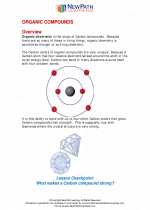
 Worksheet/Answer key
Worksheet/Answer key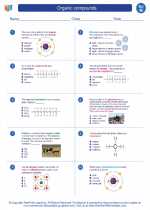
 Worksheet/Answer key
Worksheet/Answer key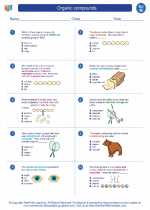
 Worksheet/Answer key
Worksheet/Answer key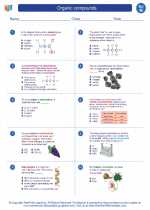
 Vocabulary/Answer key
Vocabulary/Answer key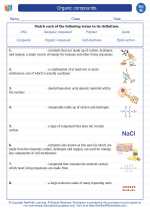
 Vocabulary/Answer key
Vocabulary/Answer key
